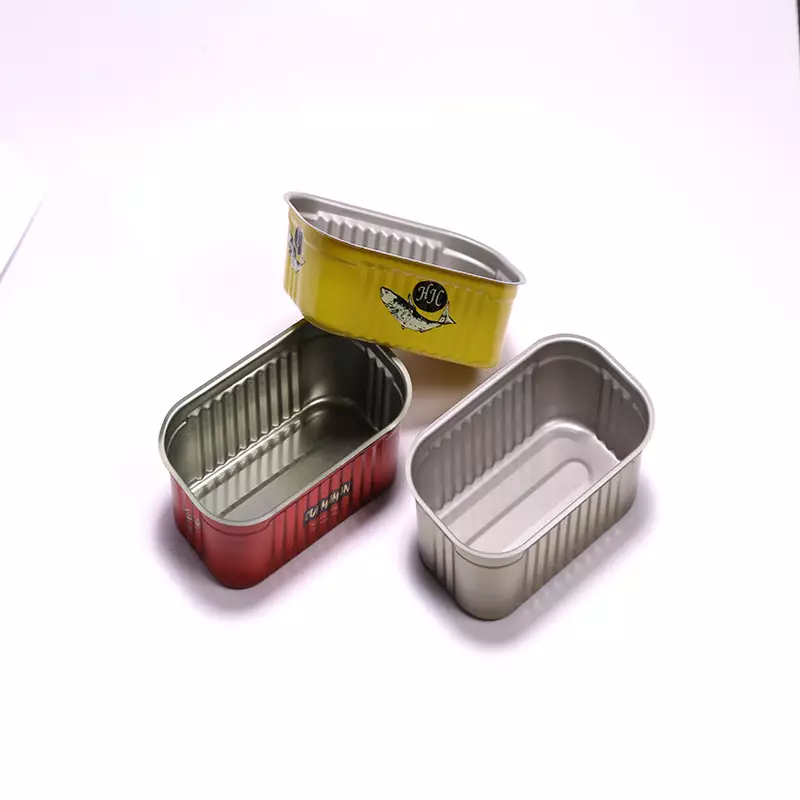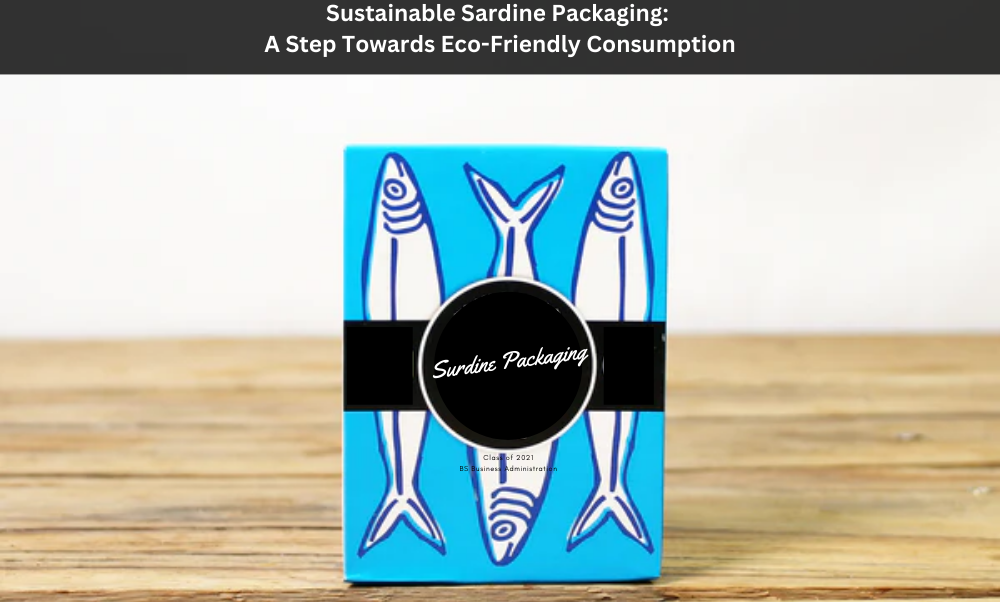Sustainable sardine packaging aims to minimize the environmental impact of packaging in the food industry. It utilizes renewable, recyclable, biodegradable, or compostable materials like aluminum and tin. By reducing waste, conserving resources, and minimizing the carbon footprint, sustainable packaging helps combat plastic pollution and contributes to the overall sustainability of the seafood industry. Embracing sustainable sardine packaging is vital for protecting the environment and ensuring a healthier future for consumers.
Environmental Consequences of Conventional Sardine Can Design
Conventional sardine packaging methods, which often involve using non-sustainable materials like plastic, can have significant negative environmental consequences
Here are some statistics and case studies that illustrate the magnitude of the problem:
- Plastic pollution: Plastic sardine or tuna packaging, such as single-use plastic bags or plastic film wrappers, contributes to the global plastic pollution crisis. According to a report introduced by the Ellen MacArthur Foundation, about 32% of plastic packaging escapes collection systems and ends up in the environment, including oceans. This severely threatens marine life, as sardines and other marine species can mistake plastic for food or become entangled in plastic debris.
- Carbon emissions: The production of conventional sardine packaging materials like plastics can generate substantial carbon emissions. According to a study published in Science, the global production and disposal of plastics in 2015 alone resulted in approximately 1.8 billion metric tons of CO2 emissions. These emissions contribute to climate change and its associated impacts on ecosystems and biodiversity.
Sustainable Packaging Solutions for Sardines
Sustainable packaging solutions for sardines are crucial in reducing the environmental impact of packaging. Here are some key aspects to consider:
- Sustainable Materialsfor Sardine Packaging
Recyclable materials can be excellent alternatives to conventional packaging materials. Recyclable materials like aluminum and tin can be used for sardine packaging. These materials minimize environmental harm and promote circularity in the packaging life cycle.

- Benefits of Using Recyclable Materials forFish Packaging
- Reduced carbon footprint: Sustainable packaging materials, especially those made from renewable resources or recycled content, reduce carbon emissions. For example, using recyclable plastics made from post-consumer recycled content requires less energy and emits fewer greenhouse gases during production than virgin plastics.
- Lower waste generation: Sustainable sardine packaging minimizes waste generation throughout the product’s life cycle. Packaging recyclable or compostable materials contribute to waste reduction by providing end-of-life options that divert Packaging from landfills. This helps conserve natural resources and minimize environmental pollution.
- Recycling benefits: Recyclable packaging materials offer the advantage of being collected, processed, and used as feedstock for new products. Using recycled materials in packaging reduces the demand for virgin resources, leading to lower energy consumption and environmental impact. Recycling also helps promote a circular economy by closing the loop on materials, minimizing waste, and maximizing resource efficiency.
- Innovative Sardine Packaging Designs
Innovative packaging designs are crucial in optimizing material usage and minimizing environmental impact. Design strategies like lightweight, using minimal packaging layers, and incorporating renewable or recyclable materials can significantly reduce the overall environmental footprint of sardine packaging. Additionally, considering design elements such as ease of recycling or composting can facilitate the end-of-life management of the packaging.
Canlid’s F311: A Sustainable Food Packaging Solution for Sardines
Canlid’s F311 Sardine Can design is a reliable and innovative solution specifically designed for packaging sardines. Its exceptional features and high-quality construction offer optimal preservation and convenience for consumers. This kind of can is made of aluminum, which can be recycled, greatly reducing the negative impact on the environment.
Canlid’s F311 packaging offers superior quality with its food-grade materials, ensuring safety and hygiene standards for sardines. It is highly resistant to high-pressure conditions during transportation and storage, maintaining the product’s freshness. The fish packaging features an easy opening mechanism, eliminating the need for a can opener and saving time. The efficient sealing design provides a secure seal while allowing convenient access to the sardines. Additionally, Canlid offers customizable options for size, design, and branding to meet specific requirements.
About Canlid
Canlid, a professional one-stop solution provider for sustainable food packaging, stands out as a leading player in the industry. With over 15 years of experience, we have consistently delivered high-quality aluminum packaging products. Our commitment to minimizing environmental impact is evident through our investment in the latest technology and pollution-free facilities.
Canlid’s dedication to sustainability, competitive pricing, and ability to maintain high product quality makes us the ideal choice for businesses seeking eco-friendly sardine packaging solutions.
Choose Canlid today and take a step towards responsible and sustainable consumption!


